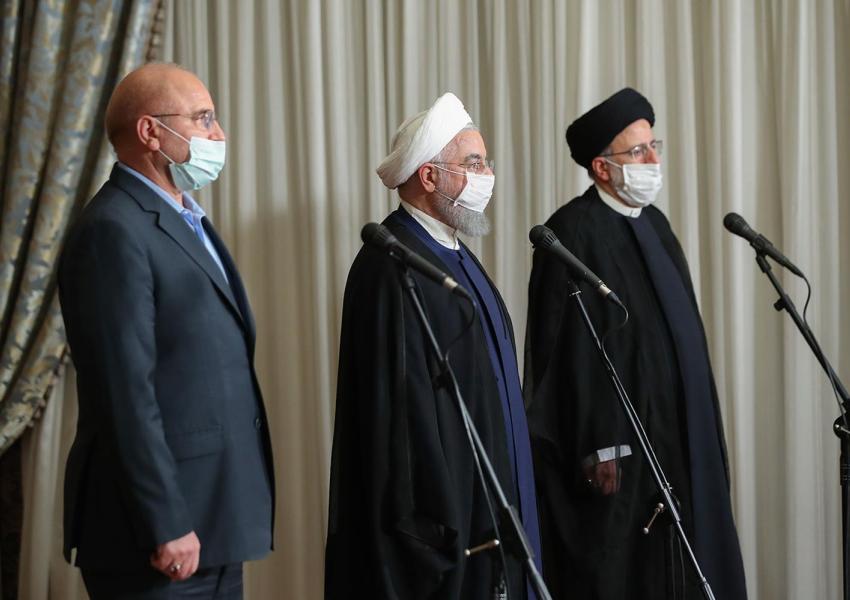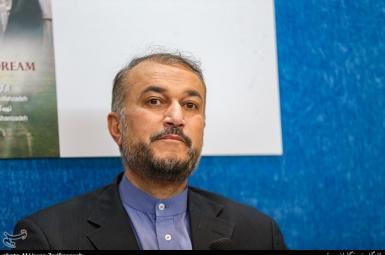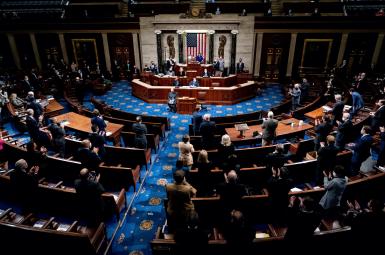
Rouhani Says All Iran Factions Now Accept Need For Nuclear Talks
President Hassan Rouhani told cabinet members Wednesday that consensus had emerged in Iran over his strategy of negotiating with world powers to revive Iran’s nuclear 2015 deal, the JCPOA (Joint Comprehensive Plan of Action).
"Everyone is in support of the negotiations, but everyone wants to take the lead in the talks as they believe they are better negotiators,” Rouhani said. “But what is significant is that everybody agrees that negotiating is the best way ahead."
Rouhani said that the United States campaign of ‘maximum pressure’ − crippling sanctions introduced by former president Donald Trump after withdrawing the US from the JCPOA in 2018 − had failed. "The United States was adamant to change Iran's regime as a result of the economic war it waged against Iran,” Rouhani said. “US officials kept promising that there would be a regime change in Iran in three or six months, but this never happened.”
Rouhani argued that Trump had failed to build a consensus against Iran, with his approach supported by only few, including Israel, and rejected by many traditional US allies.
"We defeated the sanctions twice,” Rouhani said. “Once in 2015 [when the JCPOA was signed and multilateral sanctions lifted] and again in 2021. I have done what I should have done, but how the formalities are going to be worked out is another matter.”
Rouhani referred to "settling major matters with America,” following his suggestion last week that agreement-in-principle had been reached in Vienna. Washington is participating in the Austrian capital indirectly, with formal meetings attended by remaining JCPOA signatories – China, France, Germany, Iran, Russia, and the United Kingdom.
"We defeated the sanctions twice. Once in 2015 and again in 2021. I have done what I should have done, but how the formalities are going to be worked out is another matter," Rouhani said.
Iran’s claims of victory come against the backdrop of its worst economic crisis in three decades, with sanctions cutting off most of its oil exports and hard currency revenues, with around 50 percent inflation and three years of a deep recession.
"This is the point of no return - no one in Iran can say that the JCPOA is bad," Rouhani said. "Even Trump himself wanted to talk with us…He also called on me tens of times through European states and other countries to start negotiations." Rouhani said that new president Joe Biden had promised to revive the JCPOA during his election campaign because he knew this was supported by most Americans.
While five principlist candidates in the June 18 presidential elections have in the past to varying extents criticized the JCPOA, the nuclear deal has not emerged as an election issue – with Rouhani, Supreme Leader Ali Khamenei and diplomats all stressing that nuclear policy is made collectively.
All seven candidates have been criticizing the economic management of the Rouhani administration, while the president has been busily opening projects every Thursday during the last months of his presidency and plans to continue inaugurating various projects also on Mondays starting next week.
Rouhani's critics have accused the administration of opening some of the projects including the Tehran-Caspian highway more than once during the past years while the highway is still closed to traffic.
Rouhani told the cabinet he was not making his farewell speech and promised that he would have more to say, including a final address to the nation at the end of his term of office in August.








